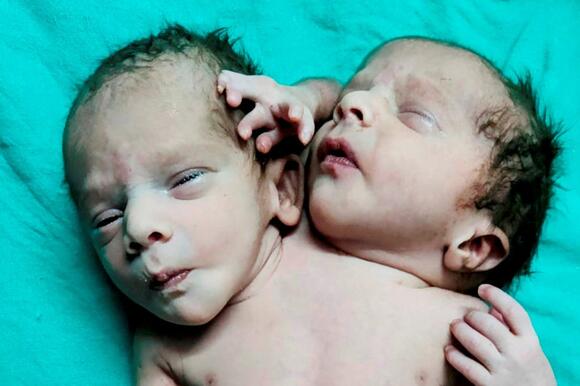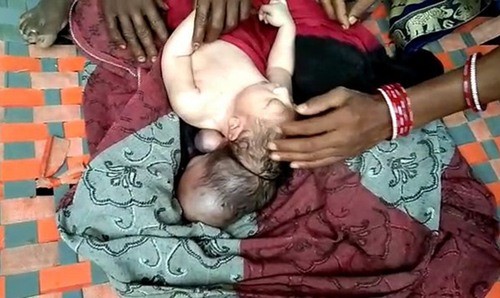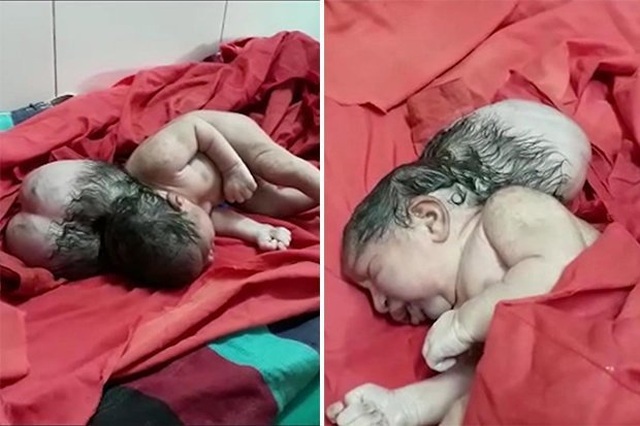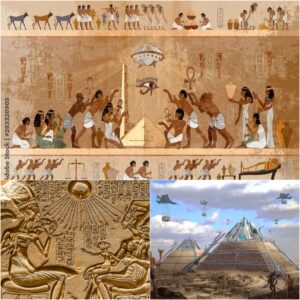In a remarkable and rare case in India, a baby has been born with two heads, three arms, and two hearts, leaving doctors astonished. Shaheen Khan and her husband Sohail were anticipating the arrival of two fully formed twins, but the couple was taken aback when Shaheen gave birth to a baby with two heads on March 28 in Ratlam, Madhya Pradesh.

This condition, known as dicephalic parapagus, involves two infants joined by one torso and often leads to stillbirth. Against the odds, these conjoined twins have survived and are currently under close observation in a hospital in the nearby city of Indore.

The prevalence of conjoined twins is relatively low, with estimates ranging from one in 50,000 to 100,000 births according to the American Journal of Medical Genetics. Approximately 11% of conjoined twins fall into the category of dicephalic parapagus, as reported in the Journal of Pediatric Surgery.
Conjoined twins result from a fertilized egg starting to split into two embryos a few weeks after conception, although the process halts before completion. Successful separation surgery depends on the specific point of connection, and doctors can only determine the shared organs and plan surgery after the twins are born.
Dr. Lahoti, one of the attending physicians, emphasized the rarity of such cases, stating that the condition of the babies remains uncertain, especially in the initial days. As a precaution, the medical team has opted to keep the twins under observation without immediate plans for surgery.

In a separate incident, another Indian woman named Ragini gave birth to a baby with three heads in Uttar Pradesh. Both mother and child are reportedly in good health. The locals have deemed the baby an incarnation of the gods, seeking blessings and miracles.

These occurrences underscore the unpredictable nature of childbirth, where medical professionals navigate the complexities of rare conditions, and families grapple with the unexpected, seeking support and understanding from their communities.







